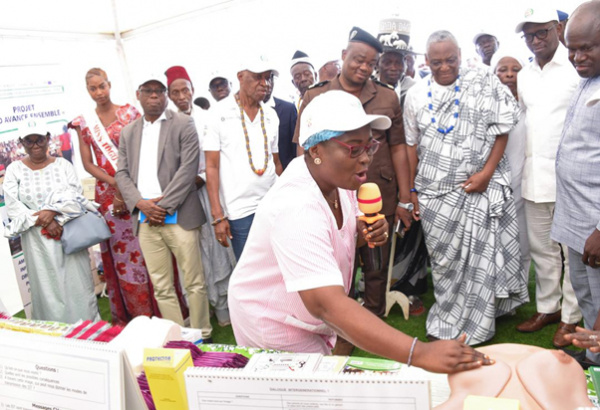Togo and Benin launched a major cross-border social mobilization campaign on reproductive health, family planning, and HIV/AIDS prevention. The launch took place at the beginning of October 2025, the Ministry of Health announced on Sunday, October 5, in Lomé. WAHO supports the operation, and AUDA-NEPAD funds it through the Demographic Dividend and Sexual and Reproductive Health in Africa Program. Teams focus activities at the Sanvee-Condji node in Togo and the Hilla-Condji node in Benin. The campaign targets people who live in border areas and often lack access to public health services.
Mobile clinics and outreach teams will travel to hard-to-reach communities. Health workers will offer family planning counseling and distribute modern contraceptives. They will also provide HIV and STI testing, treatment referrals, and prevention education. Community volunteers will help identify local needs and encourage attendance. Local authorities coordinate cross-border logistics, ensuring services reach populations on both sides.
Planners set clear, measurable goals for the campaign. The operation aims to serve 2,300 people directly. Organizers expect to recruit 700 new users of modern contraceptive methods. They also plan to screen 1,600 individuals for HIV and other sexually transmitted infections. These targets match the initiative’s dual aim: improve immediate access to services and boost longer-term reproductive health outcomes.
The campaign emphasizes accessibility and confidentiality. Counselors will provide private consultations and informed choice guidance. Trained professionals will offer rapid HIV tests and link positive cases to care promptly. Where needed, teams will distribute condoms and provide post-test counseling. Youth-friendly services will accommodate adolescents while respecting their privacy and decision-making rights.
Cross-border collaboration strengthens the response in multiple ways. Sharing resources helps cover gaps in health infrastructure near borders. Joint planning prevents duplication and maximizes reach. Health authorities from both countries combine data to identify hotspots and tailor interventions. Community leaders and civil society groups reinforce messaging and build trust among residents.
The initiative also invests in local capacity. Health workers receive training in family planning, HIV testing, and counseling techniques. Peer educators gain skills to sustain awareness efforts after the campaign ends. This approach helps embed knowledge within communities and improves service continuity.
Monitoring and evaluation will follow the campaign closely. Teams will record service uptake, contraceptive adoption, and testing outcomes. Officials will analyze results to refine future cross-border actions. Donors and partners will use the data to assess impact and guide further investments.
The campaign arrives at a critical time. Border communities often face barriers to care, including distance, transport costs, and limited facility hours. By bringing services to these populations, Togo and Benin aim to reduce health inequalities. The effort could also lower new HIV infections and unintended pregnancies in the targeted zones.
Stakeholders describe the operation as a model for regional cooperation. WAHO’s technical support and AUDA-NEPAD’s funding demonstrate how regional actors can back national efforts. Successful implementation could inspire similar campaigns elsewhere along West African frontiers.
Community members will play a central role throughout the campaign. Their involvement will ensure services meet real needs and that culturally appropriate methods guide outreach. Health authorities expect local ownership to improve uptake and sustain benefits.
In short, Togo and Benin have launched a focused, well-supported cross-border campaign to expand reproductive health services, increase contraceptive use, and scale up HIV and STI screening. The Sanvee-Condji and Hilla-Condji nodes will serve as operational hubs. Organizers aim to reach 2,300 people, recruit 700 new contraceptive users, and test 1,600 individuals. If successful, this campaign could strengthen health coverage and reduce disparities for border populations.






